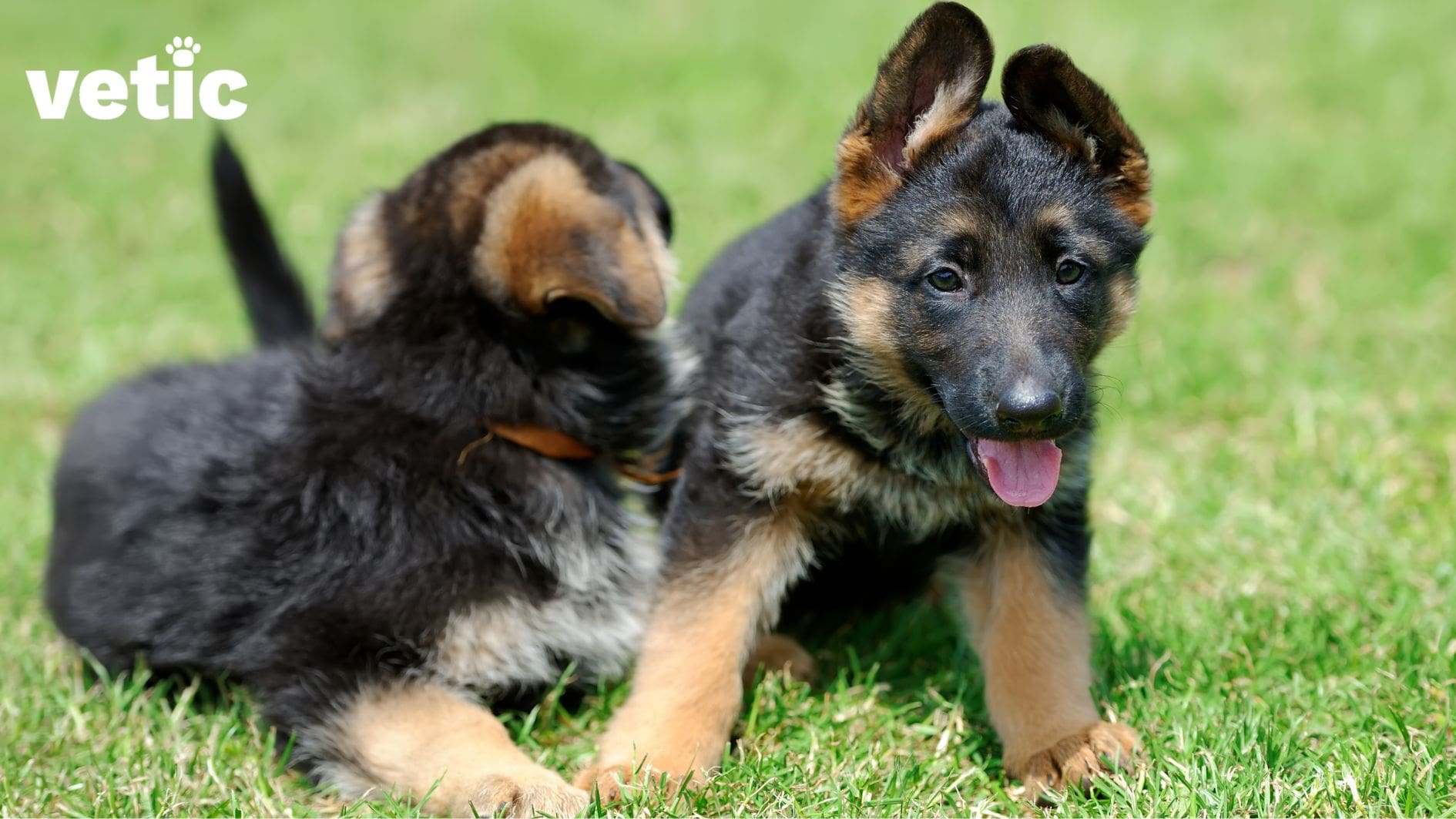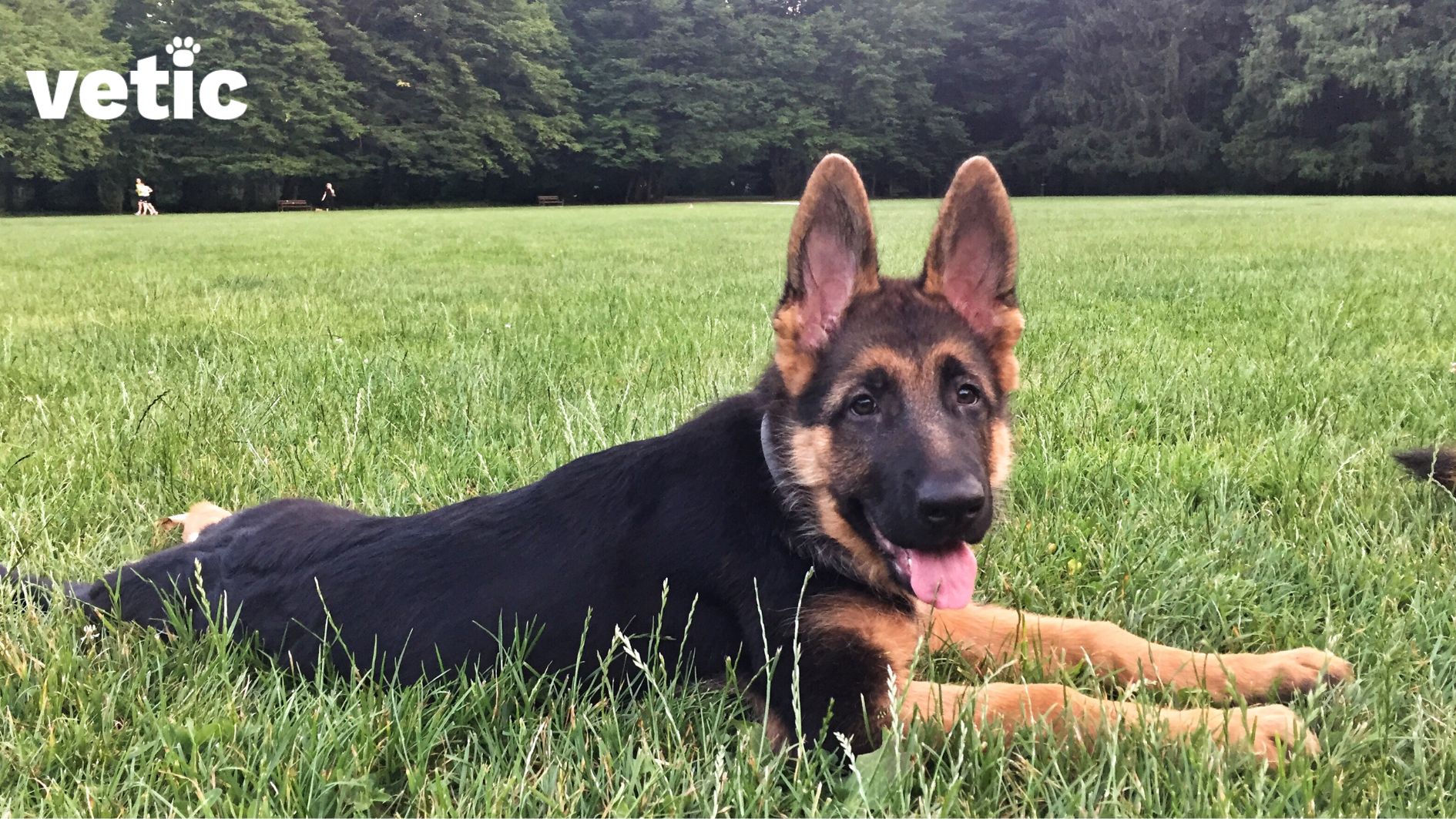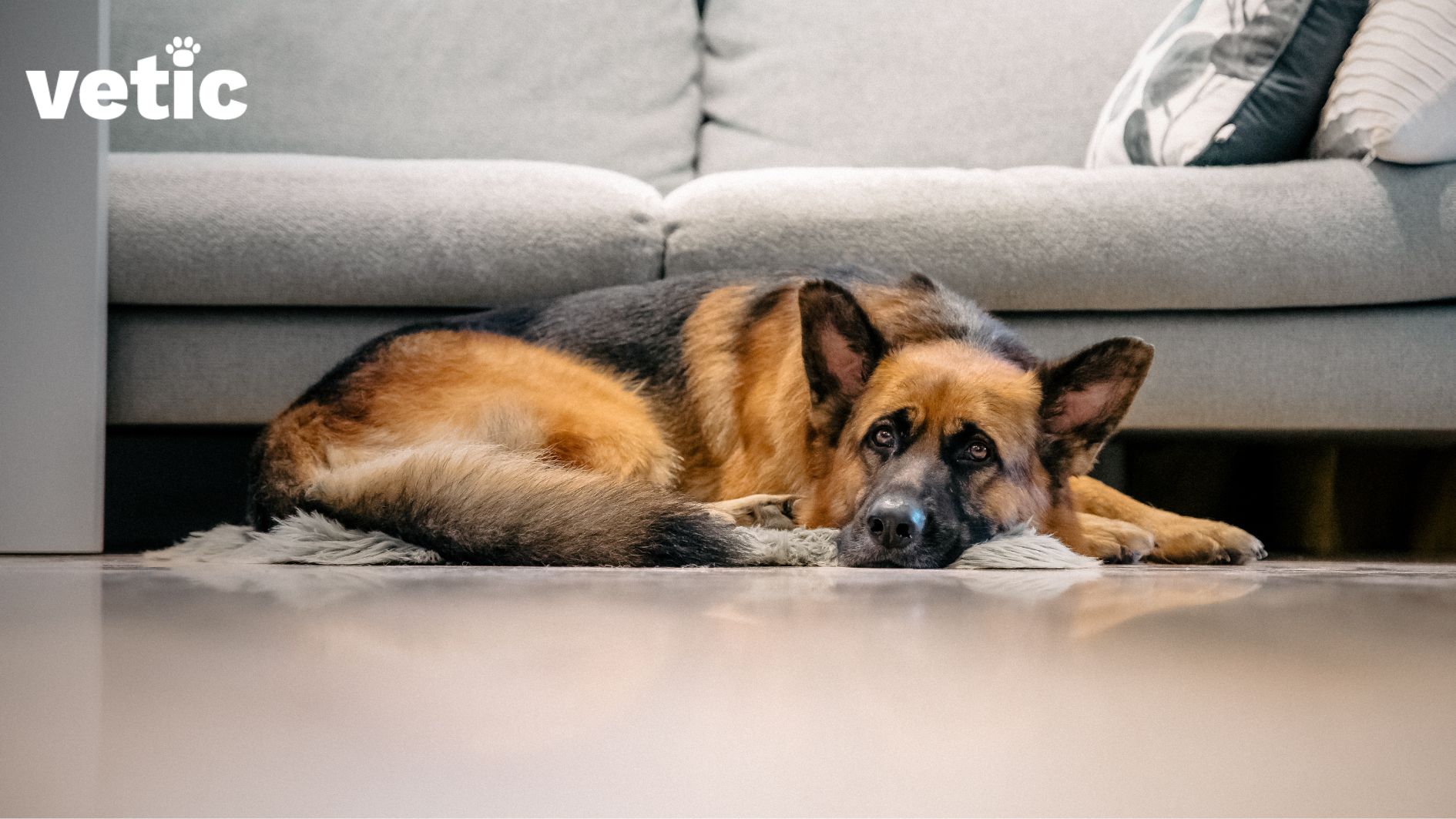If you are looking for a four-legged soulmate then the German Shepherd is the perfect choice. The German Shepherd or GSD was selectively bred in the late 19th century to be fiercely loyal, courageous, hard-working but at the same time affectionate, playful and great with children.
What Should You Know About German Shepherd Dogs Or GSDs Before Getting A Pup?
German Shepherds in India are very popular due to all these traits. They make amazing guard dogs and wouldn’t blink twice to save their owners from imminent threats.

Let’s make a list of all the traits that make them the role model among all dog breeds –
- They are highly affectionate and family dogs.
- GSDs are good with children and other family members.
- They are somewhat tolerant of other dogs.
- GSDs are not instantly trusting of strangers. They require more than one date to be themselves!
- German Shepherd dogs are extremely vigilant, but also comparatively less vocal. (So, readers, please train your pups to NOT bite from an early age!!)
- They have a high energy level and they require a lot of exercise.
- Thankfully, GSDs are highly trainable. You can use a treat-based rewarding system to accelerate the training process.
- Sadly, you will have to keep your GSD pup busy with mental tasks. Or, you will need a monthly budget for shoes, clothes, tables, chairs, cushions, mattresses…you get the drift.
- You will definitely find dog hair everywhere unless you groom them regularly.
Not training German Shepherd dogs properly means ending up with a high energy tornado that thinks for themselves.
Contrary to popular belief, aggression is not hard-wired into their system. Their behaviour is a reflection of your training efforts.
Think about it – they were bred as herding dogs to protect flocks of harmless sheep! If they were violent and aggressive they would have lost their “job” by the early 20th century.
Instead, they survived two World Wars, reached India and thrived to become one of the most loved breeds among dog show patrons and families alike.
What Sets a German Shepherd Apart: All Traits that Make a GSD
They are large dogs with a strong personality. Now, the type of personality will depend on the family bonding they have along with the training, exercise and mental stimulation they receive.
Let’s talk a bit more about the impressive traits of GSDs before we can confirm that you are absolutely in love with them.
The Size and Weight of a GSD

The ideal height of a German Shepherd should be around 24-26 inches at their shoulders for males and 22-24 inches for females.
Depending on their height and genetics, the ideal weight for a male German Shepherd is between 30 to 40 kg. And that of a female German Shepherd is between 22 to 32 kg.
If your fluffy weighs more than that, it’s time for a diet change and new exercise plans!
Diet of a German Shepherd
Typically, you should ONLY feed breed-specific high quality dog food to your German Shepherd. You will find dog food according to your pup’s age (puppy, adult and senior) across multiple brands.
They should not require additional food, but giving them some chicken, eggs and cooked vegetables is fine, as long as you have spoken to your veterinarian.
Friendliness and Affection of a GSD

Do you know how introverted humans function? If you think of your GSD as an introverted human being, their behaviour might be easier to grasp.
They are absolutely adorable, loving, affectionate and even goofy towards their family members but they can be cold towards new people.
They need considerable time to warm up to visitors. If your adult German Shepherd doesn’t want to interact with a new person it’s better to just let them be. GSDs do not like to be in a coerced relationship with humans and the outcome is mostly unpleasant.
Grooming frequency of German Shepherds
Unless you want a wardrobe full of fur-t shirts, fur-dresses and fur-pants, please brush your German Shepherd pup once a day. Use a deShedder to get rid of their loose undercoat at least once a week.
They have double-coats. The upper coat is thick, coarse and medium-long. The undercoat is soft and thick, and it sheds the most!
For bathing and deShedding them properly, you might want to take your GSD to a pet clinic with dog grooming services near you. Cleaning out that thick coat all by yourself at home will be very similar to a HIIT workout.
Watchdog Traits of GSDs
German Shepherds are the complete package every dog owner desires. They are affectionate towards family but they will not let a fly pass through your doors. (Do not take that literally. They can be quite goofy around flies.)
They will protect the family and everything around them. They were bred to be protectors and that is one of the many qualities that has been preserved over centuries of breeding.
Although they do not bark much, they definitely become vocal if anyone is within 200 metres of your property. After that, it’s your responsibility to figure out if it’s a thief or a squirrel!
Trainability of GSDs

German Shepherds are one of the most intelligent and trainable dogs on the planet. They need a lot of mental stimulation and positive reinforcement, since they get bored easily (thanks to their high intelligence and independent thinking). You will need to learn behavioural training before you begin training them.
We have heard many complain how unruly, moody and unpredictable GSDs are. But think about this – if they truly were the mavericks of the dog world, how could Rin Tin Tin, a German Shepherd, be nominated for the Oscars back in 1929?
Begin training early and you will have a show quality dog gracing your household!
Health Problems in German Shepherd Dogs
Sadly, most German Shepherds in India do have considerable health problems in comparison to Beagles and Siberian Huskies. Experts say these are results of selective breeding and inbreeding in the early GSD bloodlines.
Here are some common and serious health problems German Shepherds face –
- Hip and elbow dysplasia
- Degenerative myelopathy
- Bloat and GDV (Gastric dilatation and volvulus)
All German Shepherd owners should learn about bloat and GDV since they are life-threatening. If you have a GSD at home please keep the contact information of a 24/7 emergency vet clinic near you.
Here are some of the most frequently asked questions about GSDs:
How much exercise does a German Shepherd need?
A German Shepherd needs at least 1-2 hours of exercise daily to stay healthy and mentally stimulated.
When should I start training my German Shepherd pup?
Start training your GSD pup as early as 8 weeks old to establish good behavior and obedience.
Where can I find a reputable breeder for German Shepherds in India?
Look for reputable breeders through kennel clubs, breed associations, or referrals from veterinarians to ensure ethical practices.
Why do German Shepherds excel in police work?
GSDs excel in police work due to their high intelligence, agility, and strong work ethic, making them ideal for demanding tasks.
How do I groom a German Shepherd’s double coat?
Groom your German Shepherd by brushing their coat 2-3 times a week and bathing them monthly to manage shedding and keep their coat healthy.
What should I feed my GSD?
Feed your German Shepherd pup a balanced diet of high-quality dry or wet dog food formulated for active breeds to support their energy needs.
How do I socialize my German Shepherd puppy?
Socialize your German Shepherd puppy by exposing them to various environments, people, and other animals from a young age to build confidence and good behavior.
Why are Belgian Malinois ideal for dog sports?
Belgian Malinois are ideal for dog sports due to their boundless energy, agility, and quick learning abilities, excelling in activities like agility and obedience.
When should I take my German Shepherd to the vet?
Take your German Shepherd to the vet for regular check-ups, vaccinations, and any signs of illness. Annual visits are recommended for ongoing health.
How do I manage the energy levels of a Belgian Malinois?
Manage your Belgian Malinois’ energy levels by providing daily physical and mental stimulation, such as exercise, training, and interactive toys.
Should I get a German Shepherd?
GSDs are very active dogs who require a lot of training and exercise. If you have the time for that, definitely get a German Shepherd for your home.
Get your puppy’s health screened by a senior veterinarian at a pet clinic near you to rule out early signs of joint problems.
Always meet the father and the mother of the pup before bringing them home. The temperament of the parents and their living environment will directly affect the temperament and health of your pup.
They are highly adaptable dogs. They can live in large mansions as well as three-bedroom apartments. However, you need to ensure they get enough exercise, mental stimulation and human interaction to remain even-tempered.

